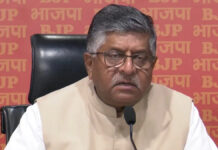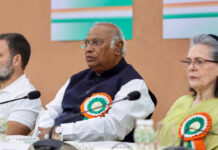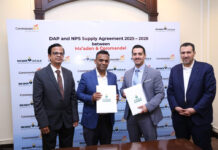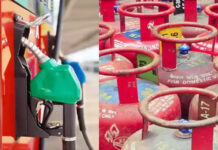India depends heavily on the Middle East for its energy needs and is against any further escalation of tension in the region, a top Indian diplomat said here as experts apprehended a confrontation between the United States and Iran. “We would not like to see any move towards any escalation in that area,” Indian Ambassador to the US Harsh Vardhan Shringla said to the reporters at a news conference here on Thursday when asked about the increased tension between the United States and Iran as a result of which the Trump Administration has deployed military assets in the region. “For the simple reason that we depend very heavily on stability in that part of the world. Their supplies are a major part of our energy requirements. A very large number of Indians also work in the Gulf. So obviously peace and stability in that area is very very critical,” Shringla said. Shringla’s quest for de-escalation of tension came on a day when US President Donald Trump did not rule out sending troops to the Middle East to counter Iran. “I would (consider sending troops to the Middle East) if we need them. I don’t think we’re going to need them. I really don’t. I would certainly send troops if we need them,” Trump said to the reporters at the White House. “Iran has been a very dangerous player, a very bad player. They are a nation of terror and we won’t put up with it. The deal that was signed by President Obama was a horror show. It’s a terrible deal. The minute I collapsed that deal and terminated it, Iran went in a very bad direction,” he said. Iran, he alleged, is now suffering from massive financial problems. They have inflation that’s about the highest in the world. “I don’t think will need it, but if we need it we’ll be there in whatever number we need,” Trump said in response to a question. Responding to a question, Shringla said India has stopped importing oil from Iran after the United States refused to extend exemption from sanctions earlier this month. As of late April, India has dropped its dependency on Iranian oil from about 2.5 billion tons a month to 1 million tons a month, he said. “We do understand that this has been a priority for the US Administration, although it comes at a cost to us because we really need to find alternative sources of energy,” the ambassador said. India, he said, has stopped importing oil from both Iran and Venezuela. Noting that the US did talk of trying to maintain price stability, he said in the short term, there has been reduced price stability. Responding to a question, the Indian ambassador said the Chabahar port is a lifeline for Afghanistan. It is a port that provides both humanitarian assistance and supplies to Afghanistan. It is in the interest of both the US and India and all others concerned to ensure that the lifeline continues to exist, he said. The US has exempted India’s development of Chabahar port from its Iranian sanctions. State Department Spokesperson Morgan Ortagus told reporters that the United States wanted all countries to stop importing oil from Iran. “We want the whole world to comply with these sanctions, and we’re grateful for our partners and allies that are respecting them,” she said when asked about India’s decision in this regard.

Dogra Herald is the media of J & K, breaking language and geographical barriers, connecting J & K to the rest of India.
0191 245 4946
info@dograherald.com
Latest articles
IAF helicopter crash: Cockpit Voice, Flight Data Recorder recovered, Air Chief Marshal visits crash site
iamjkstarr - 0
Examination of the devices will give insights into the crash, which took place on Wednesday afternoonNEW DELHI, Dec 9: The Cockpit Voice...
Tourism Department hosts all Ladies Evening at Jammu Tawi Golf club
iamjkstarr - 0
Tourism Department today organized an All Ladies Evening here at Jammu Tawi Golf club.
Dr Manu Bhatnagar inaugurated the...
District administration plans wide-ranging Water Conservation activities under project ‘Boond’: DC Jammu
iamjkstarr - 0
JAMMU: District Administration Jammu has planned to initiate wide ranging Water Conservation activities under its project "Boond" which envisages rain water harvesting,...

























